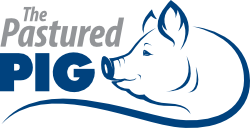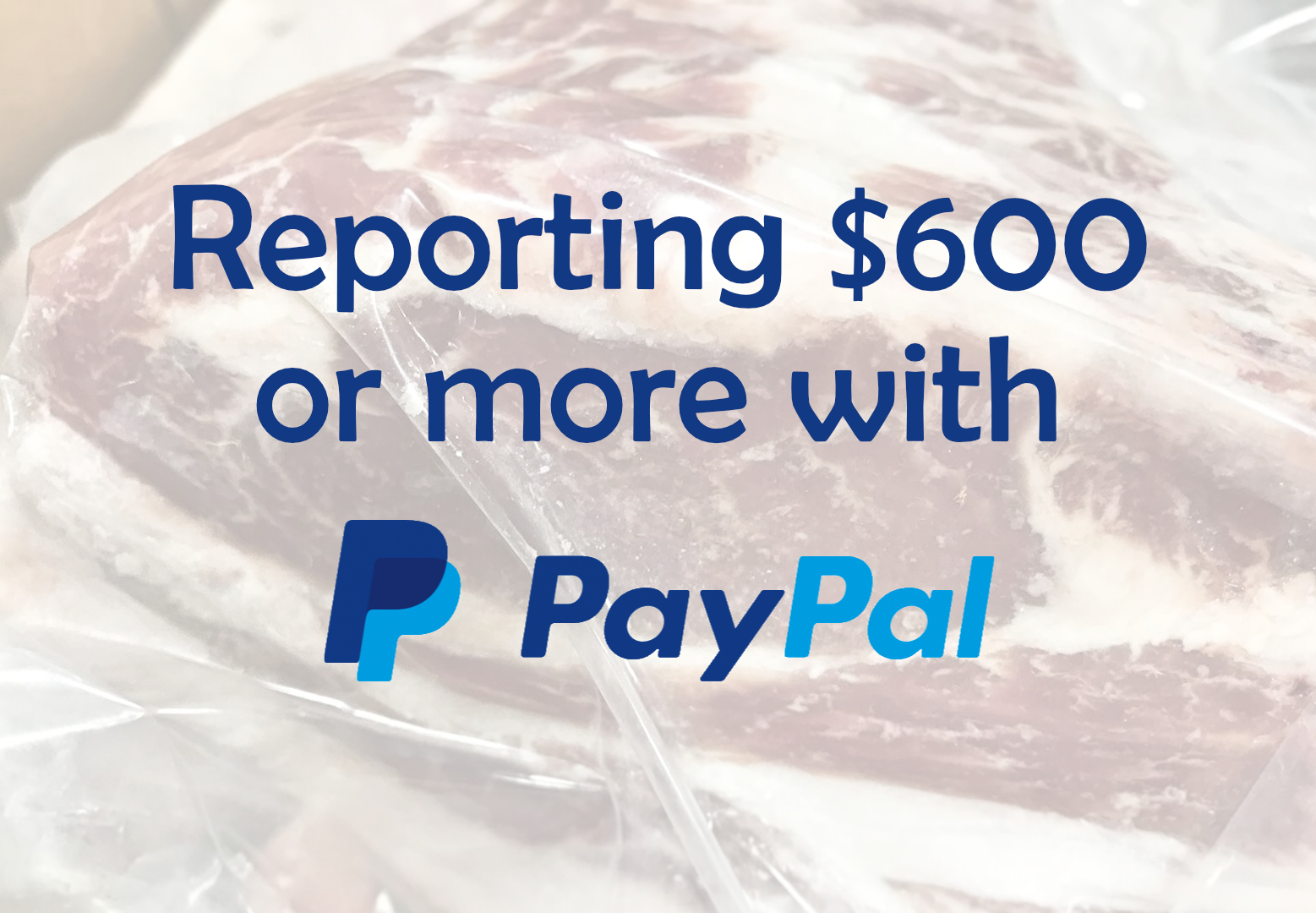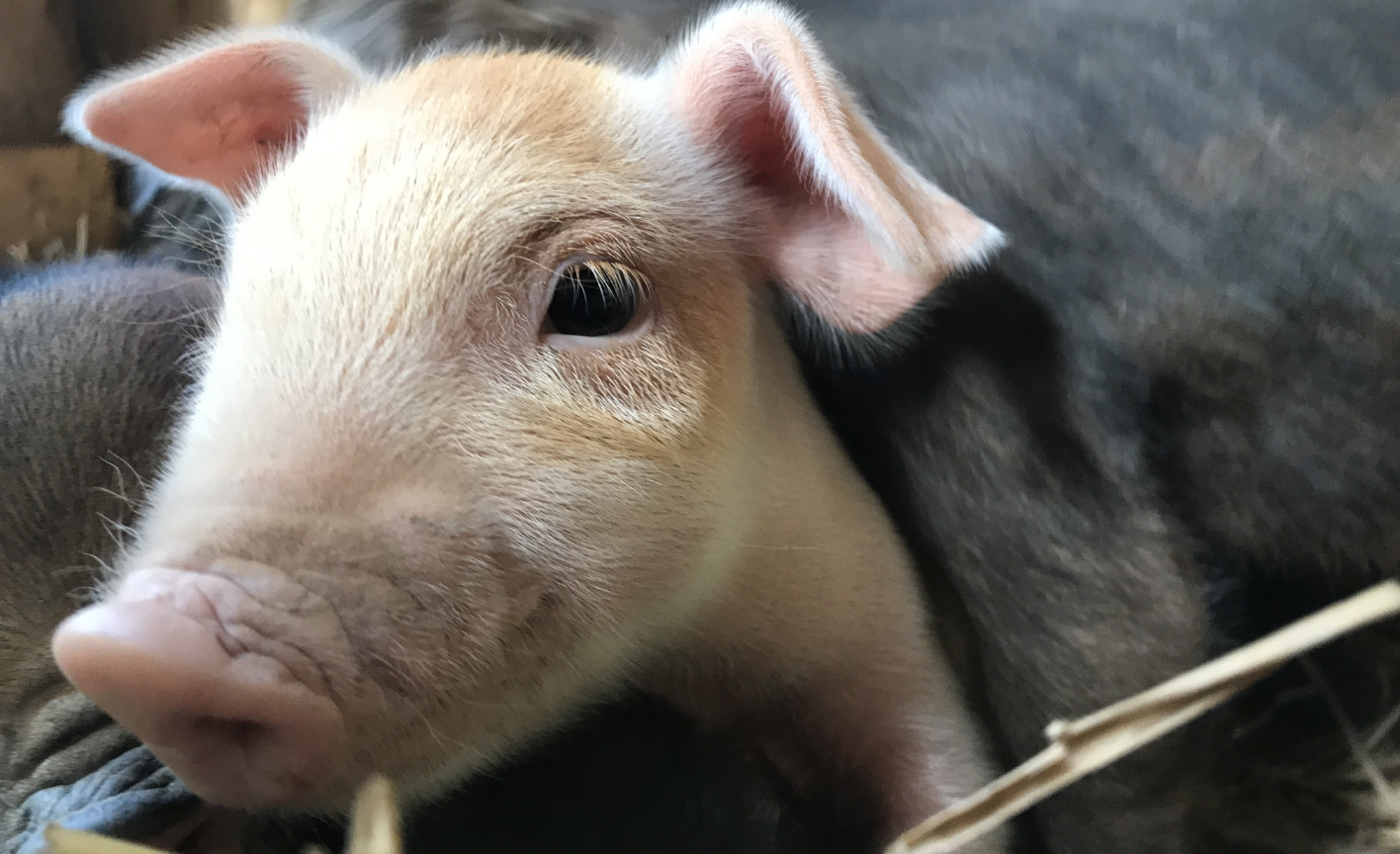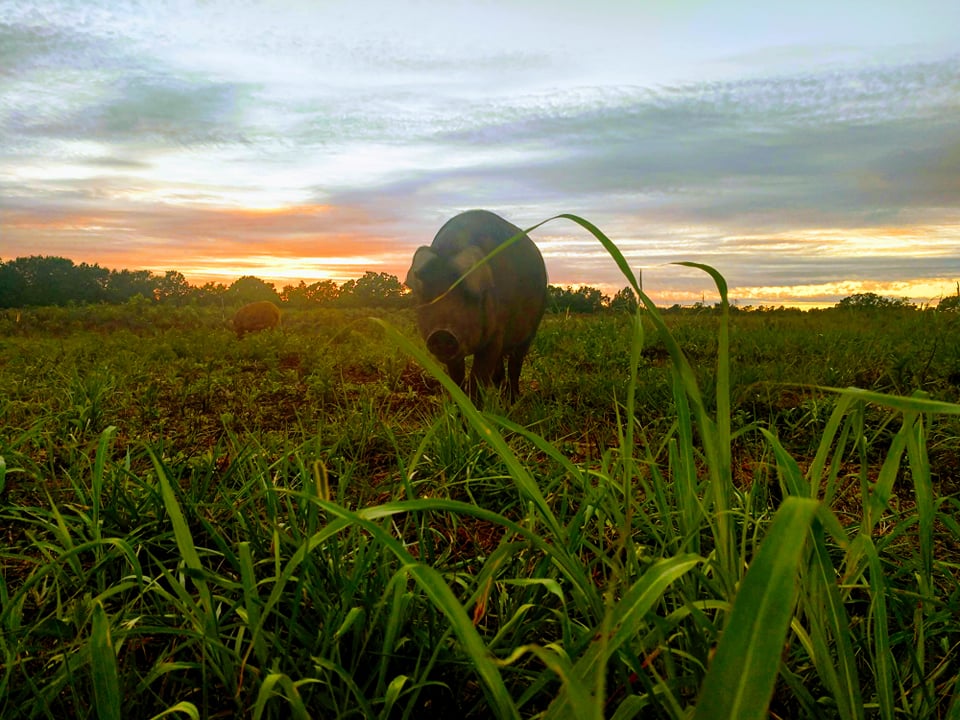For many of us, selling products we produce on our farms and homesteads has become a lucrative side hustle. These transactions allow us to invest in additional tools or supplies we need for the farm or give us the opportunity to cover the bigger expenses to which we have already committed. For others, farm-based transactions are the only source of income for the family and are critical for the solvency of the farm.
So how does the change in the tax code that was brought about with the signing of the American Rescue Plan Act bill back in March of 2021 affect small farms and homesteads? First, I want to address the irony of this tax code change being part of a bill that was touted as Covid relief. The country’s economy is reeling from the pandemic and politicians think it is a good idea to change the tax code so that more reporting is required by the small businesses that help bolster our economy. Before you think I am being partisan, this is the fault of all politicians. Splicing in changes that have nothing to do with the main bill has gone on for decades from both parties.
How This Law Affects Small Farms
Really, this law simply equates to you getting extra paperwork for your business taxes. Income you are already reporting now has documentation supporting it from either the transaction platform (Paypal, Venmo, etc) or from the paying entity if it is a business. A 1099-K form will be created by the TPSO (Third Party Settlement Organizations) if you accumulate more than $600 in transactions on their platform. This additional reporting threshold used to be $20K in a year but the new law lowered it to $600. For example, from time to time businesses will “sponsor” my Youtube channel and pay me to review their product. They send the item for free as well as a negotiated fee. If that fee exceeds $600, they are required to request a w9 from me. In a recent sponsorship agreement, the fee did exceed $600 and the following email was sent to me:
“Since the transaction is more than $600, the IRS mandates us to request a W9 form from you (blank one attached). We have to legally follow up three times to waive any penalty fees on our end.” – Sponsoring Business
I filled out the w9 and returned it. It was that simple. Since Paypal was used to transfer the funds, they most likely will produce a 1099-K as well. Paypal and other online payment portals will send similar paperwork to you if you exceed $600 on their platform in one year. They will also include your income on the reports they have to submit as well. It is really quite basic since you are reporting your income in the first place, right?
Uh, yeah, about that reporting thing….
Since the birth of the IRS, people have looked for ways to report as little income as possible (as a US citizen in good standing with the IRS currently, I strongly suggest you report all income to the betterment of the country and comply with all tax laws). Ahem. Now that is out of the way…
Cash has always been the least traceable way to transact (except for bartering) and has allowed the grey market economy to thrive. Extra income generated from side hustle work has helped families make ends meet for a very long time. I had a friend who owned a coin operated car wash. Every week, he would send his wife to the grocery store to buy food with bags and bags of quarters.
With technology allowing a transaction to take place between two individuals anywhere in the world without getting the bank involved, “digital cash” has been flowing freely and frequently. Politicians and government agencies don’t like this and have started to clamp down on the freedom this technology has created. It is similar to the law they passed several years ago placing sales tax on online transactions (web sales) even though many are still interstate transactions.
If you have not been reporting income (small business or any income from providing a product or service) that is processed through any of these online platforms, please understand that you should start immediately simply because it is being reported from the other end of the transaction. There is a record being created and submitted.
Are All Online Transactions Taxable?
Not everyone uses these platforms to exchange funds for products or services. Your mom might want to send you $100 for Christmas via Paypal. That money should not be reported as it is a gift. However, make sure your mom knows to choose the correct category for the transaction. PayPal has an article on their website explaining this.
There are some other exceptions that would make some transactions nontaxable such as a reimbursement situation (friend splits dinner costs with you) or you sold an item for a loss. Selling an item for a loss can seem like a possible option, but please understand there are hard and fast rules for this. Consult with your accountant to make sure you are categorizing correctly.
This new law applies not just to Paypal and Venmo and other similar payment platforms. If you have any Ebay or Etsy transactions, then those will be reported as well if they exceed $600. Can you imagine the labor and reporting costs these large platforms just had to take on with this law? We should all see fees from using these platforms start to increase in the near future.
How Do Small Farms and Homestead Businesses “Get Around” This New Reporting Law?
Many of us small farmers or homesteaders have an attitude of independence and maybe even a streak of rebellion. It seems to fit with our lifestyle choice. Some of you may take a stance of noncompliance and just not report while others may look for ways to go back to cash or more old-fashioned means of transacting. Before you dig your heels in and take the ”Wesley Snipes path to tax freedom”, let me make a suggestion. Play the game (by the way, the whole thing is a game).
Most likely, your side hustle income and your small farm income is really a quest for cash flow. If you truly penciled out all the expenses associated with doing this work, it would show a loss. It’s like chicken eggs. Sure you can sell eggs for X amount per dozen and maybe even cover feed costs but if you factor in your time, your equipment, and your land, then you are probably losing nesting boxes full of cash. You can even justify it by saying how you get better quality food, entertainment from watching chickens do their thing, and peace of mind knowing you have more food security than the typical urbanite. All of this is true but you are still spending more cash than you are taking in. That is the point right there. You are spending more than you are taking in.
Make Sure Your Farm Business or Side Hustle is Registered As a Business
Many people think that as soon as they decide to start a business that they have to pay tons of fees and licensing and additional taxes to get it going. While there may be a simple business filing fee, there really aren’t any other expenses to starting a simple business (there are always exceptions so don’t think your nuclear power plant you want to build on the back cow pasture is going to be easy). You don’t even need to get an accountant to start a small business. Most states allow you to file online with the Secretary of State’s Office.
Once your business is established, you can start reporting not only your income, but your expenses to counteract the tax implications of that income. Let’s do a simple example to illustrate this point.
You have a small leather crafting business you conduct at your homestead. You sell your items all over the country because people have found you on social media. You accept online payments from paypal and venmo. If, in 2022, you sell $5000 worth of leather goods and all of those transactions come through those platforms, you will have to report it as income. If you are not a registered business, that $5000 may just be a line item as “extra income” on your taxes and be added to your yearly total income, possibly affecting your tax bracket.
If, however, you registered your leather crafting work as a business, then you get to claim the expense of the raw products you needed to make your items. The raw leather, the thread, the finish, etc. can all be claimed as expenses. You also get to deduct your tools, equipment, electricity bill, workshop space, etc. and many other expenses. If you report $5000 in income from your leather goods sales over one year but you also show $4900 in expenses for that same year, your tax responsibility is on the $100 net, not the $5000.
If your business thrives and your personal reporting shows a large profit is to be realized near the end of the year, plan on making investments in your business by upgrading equipment or expanding work space. If you need a new heavy duty sewing machine for your leatherwork and you are showing a big profit as the end of 2022 approaches, make that purchase before the end of the year and you get to write off that expense (deductions on large purchases or big infrastructure improvements are handled differently so seek professional advice from an accountant).
Play the game of business in America. It is unfortunate that our government wants to get involved in every minute detail of our livelihood but it is where we are right now. Don’t put yourself in a position where you are hit hard by a tax audit and could possibly lose your farm. Don’t think you can sweep it under the rug and claim ignorance when you get audited. That is not an option with the IRS. If you are uncomfortable starting a business, seek help with your Secretary of State’s office. You would be surprised at how much help they can offer. Once your business is established, acquire the services of an accountant. There are many who cater to small businesses and keep their fees affordable (those fees are tax deductible too). Lastly, do not start out on this venture by following the steps of a blogger word for word. I am not an accountant and do not have the authority to give sound tax advice. I simply want to nudge you in the right direction should you need help.





I really appreciated your insights on this blog and episode, Troy. Straightforward facts to keep in mind. I especially appreciated the advice that bemoaning the tax laws is a waste of energy, and learning to deal with them to your best advantage is key.